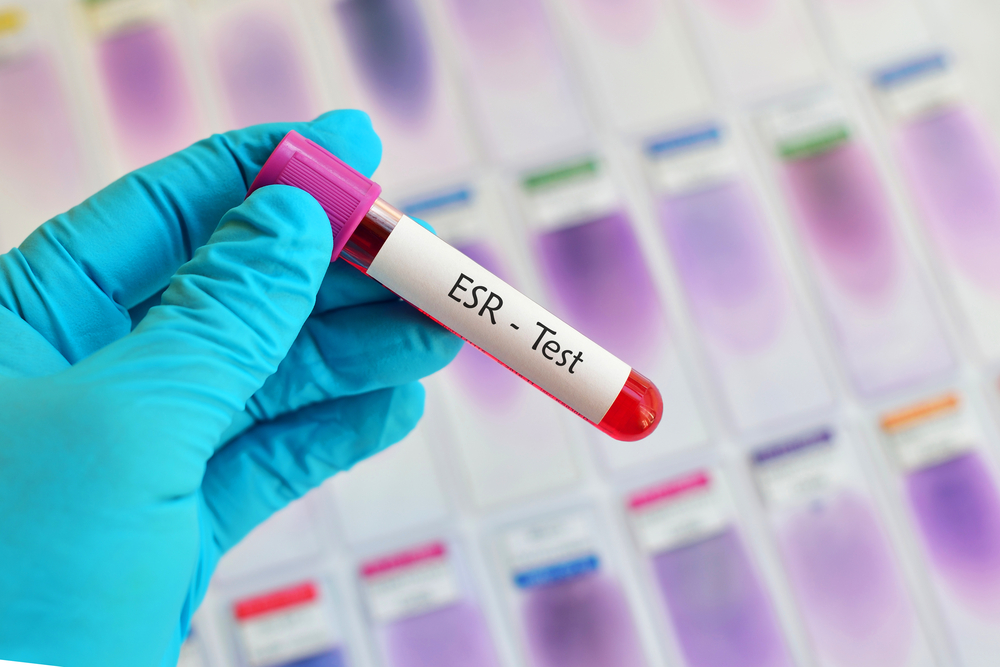Of the many things our blood can help detect, one of them is the ESR rate of the body. But what is ESR in blood test? ESR stands for Erythrocyte Sedimentation Rate. Commonly known as the “sed rate”, it is a test that helps check for the presence of a disease, infection or condition in the body that may be causing inflammation. Though, it does not directly help in diagnosing a particular condition, it helps physicians know what other tests may be needed to detect the actual problem. It’s also a way to examine how well a person is doing to a specific treatment for a disease he/she is being treated.
An ESR test can study inflammatory conditions such as rheumatoid, systemic lupus erythematosus and arthritis. The test may also be ordered in cause a person is suffering from high fever, some kind of muscle problems or arthritis.
Prepare for an ESR Test
Take care of the Medication
There are many different drugs and medications that can widely affect the results of an ESR Blood Test. These include:-
- Estrogens
- Androgens like testosterone
- Aspirin and other salicylates (when taken in high doses)
- Divalproex sodium
- Valproic acid
- Phenothiazines
- Methadone
- Heroin
- Phenytoin
- Prednisone
The Actual Test
ESR test is a normal blood test wherein a sample of blood is drawn from one the veins using a sterilized needle. The blood is collected in a sample test tube which is then sent to laboratory for testing. The procedure is simple and gets over in a matter of minutes.
Risks Involved
Though there are minimal health risks involved, it’s quite possible that one may experience one or a combination of the below mentioned complications.
- excessive bleeding from the point of vein rupture
- hematoma, or bruising
- fainting
- lightheadedness
- inflammation of the vein
- infection
Mild or moderate pain is imperative, especially when the needle pricks the skin. One may feel throbbing at the point of puncture. But the pain disappears in a matter of minutes.
ESR Blood Test Results:-
Normal Range
Typically, an ESR test results are measured in millimetres per hour (mm/hr). Normal range of ESR Blood Test is as follows:-
- Men below the age of 50 must have an ESR rate under 15 mm/hr.
- Women below the age of 50 must have an ESR rate under 20 mm/hr.
- Men above the age of 50 must have an ESR under 20 mm/hr.
- Women above the age of 50 must have an ESR under 30 mm/hr.
- Newborns must have an ESR under 2 mm/hr.
- Children who are yet to achieve puberty must have an ESR between 2 to 13 mm/hr.
Please note, normal range values differ from one pathology lab to another.
Abnormal Test Results
As we answered the question of “what is ESR in blood test?” as – it’s an element that helps identify inflammation in the body and even indirectly diagnose a particular disease or condition prevailing in the body, the test is not cent percent reliable and must be accompanied with a series of other tests to actually figure out the exact problem.
Higher ESR test result
There are a plethora of reasons that can cause high ESR rate in the body. Some common conditions include:-
- A disease in the kidneys,
- Anemia
- Lymphoma
- Temporal Arteritis
- Old age factor
- Pregnancy
- Multiple myeloma
- Waldenstrom’s macroglobulinemia
- A particular type of arthritis
- Thyroid disease
A test result higher than normal may also be associated with an autoimmune disorder, such as:-
- Rheumatoid arthritis
- Polymyalgia rheumatica
- Systemic lupus erythematosus
- Giant cell arteritis
- Too much fibrinogen in the blood
- Allergic or necrotizing vasculitis
- Primary macroglobulinemia
Certain kinds of infections too can cause the ESR test results to deviate from their normal range values. These include:-
- Heart infection
- Rheumatic Fever
- Bone infection
- Heart Valve infection
- Systemic infection
- Tuberculosis
- Skin infection
Lower ESR Test Results
A low ESR rate is generally not considered a problem. However, if the value to too low, it is an indicator that a person may be suffering from one or a combination of the below mentioned conditions.
- Sickle cell anemia
- Congestive heart failure
- Hyperviscosity
- Leukocytosis
- Hypofibrinogenemia (low fibrinogen level)
- Polycythemia
- Low plasma protein (liver or kidney disease)
Some typical causes of abnormal ESR Blood Test results are more severe than others and may be a matter of concern. The best is to talk to the physician and draw conclusion on how to bring the ESR rate back to normal.
